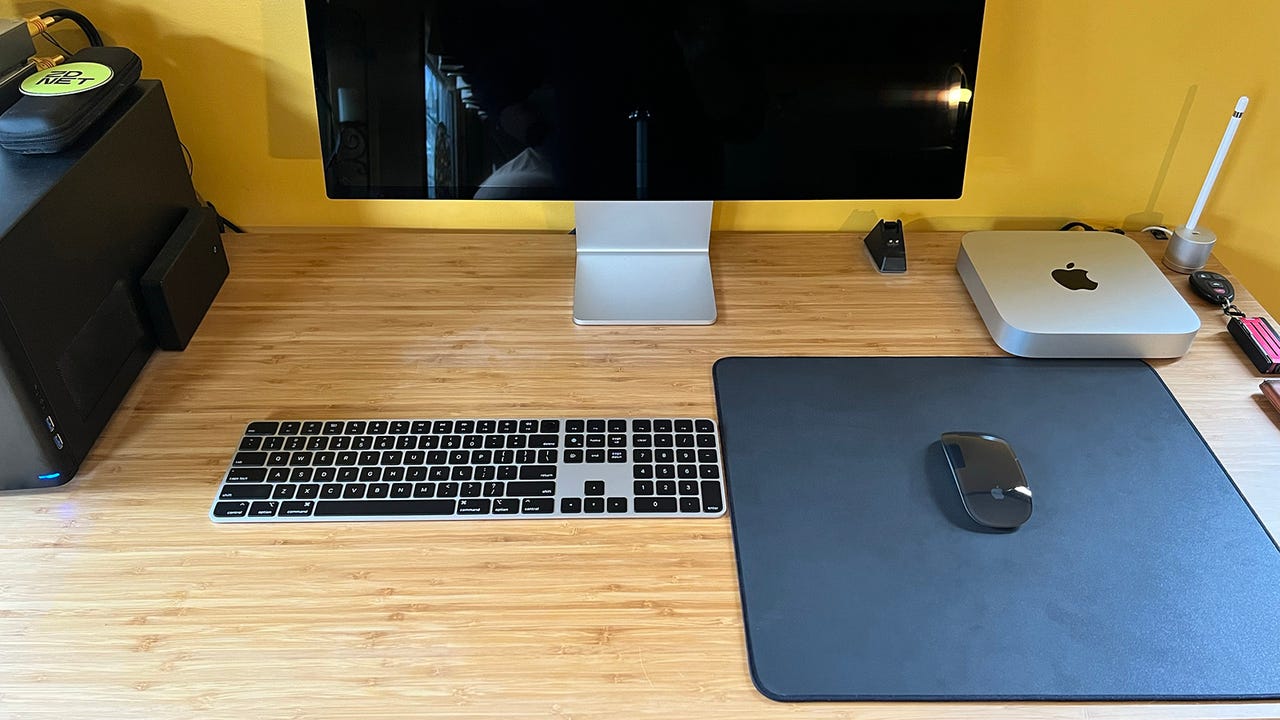'ZDNET Recommends': What exactly does it mean?
ZDNET's recommendations are based on many hours of testing, research, and comparison shopping. We gather data from the best available sources, including vendor and retailer listings as well as other relevant and independent reviews sites. And we pore over customer reviews to find out what matters to real people who already own and use the products and services we’re assessing.
When you click through from our site to a retailer and buy a product or service, we may earn affiliate commissions. This helps support our work, but does not affect what we cover or how, and it does not affect the price you pay. Neither ZDNET nor the author are compensated for these independent reviews. Indeed, we follow strict guidelines that ensure our editorial content is never influenced by advertisers.
ZDNET's editorial team writes on behalf of you, our reader. Our goal is to deliver the most accurate information and the most knowledgeable advice possible in order to help you make smarter buying decisions on tech gear and a wide array of products and services. Our editors thoroughly review and fact-check every article to ensure that our content meets the highest standards. If we have made an error or published misleading information, we will correct or clarify the article. If you see inaccuracies in our content, please report the mistake via this form.
How to update your iPhone, iPad, and Mac now to fix a critical security vulnerability

Earlier this week Apple pushed out critical updates for iOS, iPadOS, and MacOS that patch an exploit that's being used right now to attack systems.
The fact that this vulnerability is being used to attack systems means that these updates need to be installed as soon as possible.
Review: Apple M2 Mac Mini: Faster, cheaper, better
While Apple products are generally pretty good at updating themselves, given the severity of this vulnerability, combined with the fact that attacks are currently underway, it's a good idea to check to see if you're protected.
So, grab your iPhones, iPads, and Macs, and let's make sure they're fully updated.
Also: The simple but very hidden trick to more iOS and iPadOS update control
What devices need updating?
The updates apply to pretty much every iPhone, iPad, or Mac that Apple has sold in the last five years.
See also
This critical update applies to the following devices:
- iPhone 8 and later
- iPad Pro (all models)
- iPad Air (3rd gen) and later
- iPad (5th gen) and later
- iPad Mini (5th gen) and later
- MacBook Pro (2017 and later)
- MacBook Air (2018 and later)
- MacBook (2017 and later)
- iMac (2017 and later)
- Mac Mini (2018 and later)
- Mac Studio
There's also a new 16.3 version of Safari for Macs that are running MacOS Big Sur and Monterey.
Why update?
Updating the operating system on your iPhone, iPad, or Mac is the best possible thing you can do to keep your data safe from hackers. The quicker you update, the sooner you're protected, and the less time attackers have to get a foothold in your hardware.
How to update your iPhone and iPad
1. Check for updates manually
Tap on Settings, then tap General > Software Update, and this screen will check whether there are any outstanding updates. You need to make sure that iOS 16.3.1 is installed on an iPhone, and iPadOS 16.3.1 on an iPad.
2. Enable Automatic Updates
2. Tap on Automatic Updates and make sure all the settings there are enabled to allow future updates to be applied automatically.
Make sure all these iOS/iPadOS settings are enabled.
How to update your Mac
- Check that you have the latest version of MacOS
If your Mac is running the latest MacOS Ventura release, click on System Settings, then General, and Software Update. The latest version of MacOS Ventura is 13.2.1.
If your Mac is running MacOS Big Sur or Monterey, click on the Apple icon in the top-left of the screen and choose System Preferences and then Software Update. Next, check the box next to the Safari 16.3 update, and then select Install Now.
2. Enable Automatic Updates
Tap on the i next to Automatic Updates and make sure all the settings are enabled to allow future updates to be applied automatically.
Make sure these MacOS settings are enabled.
